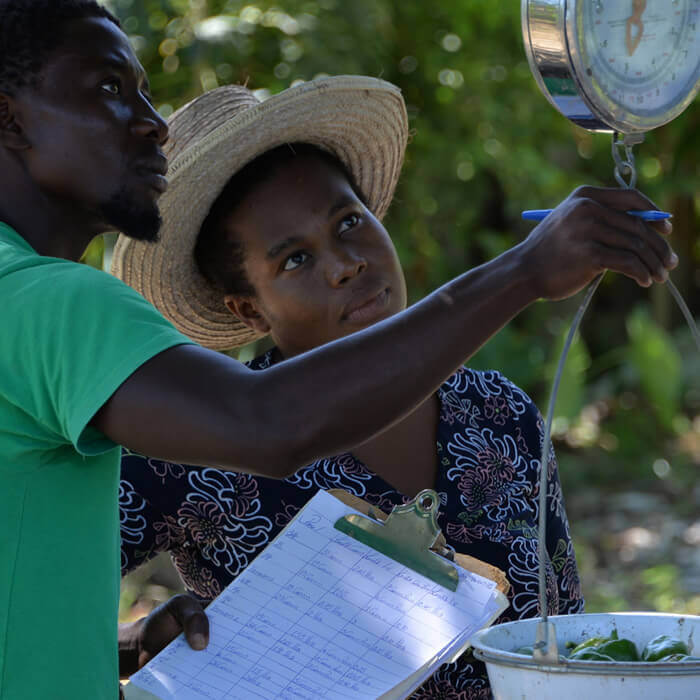EAT Forum emphasizes the urgency of a rapid transformation of food systems
Key Takeaways from the 2018 EAT Forum
By awarding the 2018 World Food Prize to two longstanding nutrition leaders, Lawrence Haddad and David Nabarro, rather than food scientists or policy experts, the World Food Price Committee reaffirmed the interconnectedness between food systems and nutrition. This concept was also abundantly clear at the recent EAT Forum, which focused on the great food systems transformation.
Momentum is starting to build around the urgency of a radical and rapid transformation of food systems to achieve both Paris agreement goals and the SDGs, including SDG2: achieving zero hunger and eliminating malnutrition. The EAT Forum is effectively playing a key role in creating many catalytic initiatives to generate scientific targets, build networks, mobilize businesses, model pathways and foster food systems dialogues around the world.
Systems approaches that bring together climate, agriculture, health, nutrition and business are fairly new territory and will require new solutions, incentives and trial and error.
However, there are some trailblazers we should look to for inspiration, and there are also clear challenges and needs where we should focus our energy. Both were highlighted at the 2018 EAT Forum and are summarized below.
4 examples of bold action and experimentation leading the way in the food systems transformation
- Chile’s experience regulating the marketing of products with high content in salt, sugar, fat and calories. Guido Girardi, a senator in Chile, shared a few key messages, including: there is urgency; take action; it is your responsibility, learn, adjust, continue and you can get fast results (68-percent change in consumer behaviors and 20 percent of products reformulated in 3 years).
- Cities have a key role to play and it’s great to see municipal leaders, networks or initiatives, such as C40 and the Milan Urban Food Policy Pact and their members as well as other city-focused organizations embracing food systems and taking bold actions to transform them.
- Capital markets are starting to adjust: from value based funds (e.g., PICTET nutrition fund) to indexes for investor (e.g., FAIRR Protein Producer Index and Access to Nutrition Index); discussions are starting on how to create a new asset class for sustainably produced healthy food, similar to green bonds.
- There is a lot of innovation within food systems and platforms to accelerate efforts such as Marco Gualtieri’s Seeds and Chips focusing on millennials as change agents.
4 things we need to urgently focus on to achieve food system transformations
- There are generally more specifics on how to address supply side issues and less so on demand side issues. How can we successfully change consumer behavior, particularly in low- and middle-income countries? We need more focus on demand: how to shift diets at scale? What kind of incentives should we use? What can we learn from other fields, e.g. climate? How did consumer demand shift to renewables or energy efficient technologies?
- We are bad at capturing the negative externalities of our food systems. Studies show that for each $1 of food consumed $2 is spent in cleaning up (Swedish Deputy Prime Minister Isabella Lövin). A lot of progress is needed in pricing the externalities of food: environmental, health, social. To change decision-making in companies, better assess and price risks, inform policymaking and, ultimately, differentiate between companies, some companies (e.g., Olam) are starting to track social and environmental indicators for their products, and getting better pricing as a result.
- Transformation will require financial incentives and mechanisms: full cost accounting, giving value to waste (e.g. cash for trash schemes); rethinking subsidies and tax systems (e.g. upcoming work of the planetary health commission).
- Although there are a lot of food systems innovators, efforts remain scattered and information hard to access. The incubators and accelerators I met at the Eat Forum did not know well what was happening elsewhere. A key issue seems to be growth capital for innovators, due to the high capital investments needed in the food industry and the slower returns compared to other sectors such as tech. The high level of concentration in the food industry also seems to be a key barrier to innovators’ abilitities to scale. A few businesses control a disproportionate amount of the market and exercise a lot of market power.
At the EAT Forum, Lövin said something that stuck with me: We are ALL the crew of mothership earth, we are not mere passengers. And I believe that due to the urgency of our current situation, we need to radically change course now, even before we’ve figured the final destination, or the best way to get there. There is no time to lose.
Photo © Raffaella Faverzani














